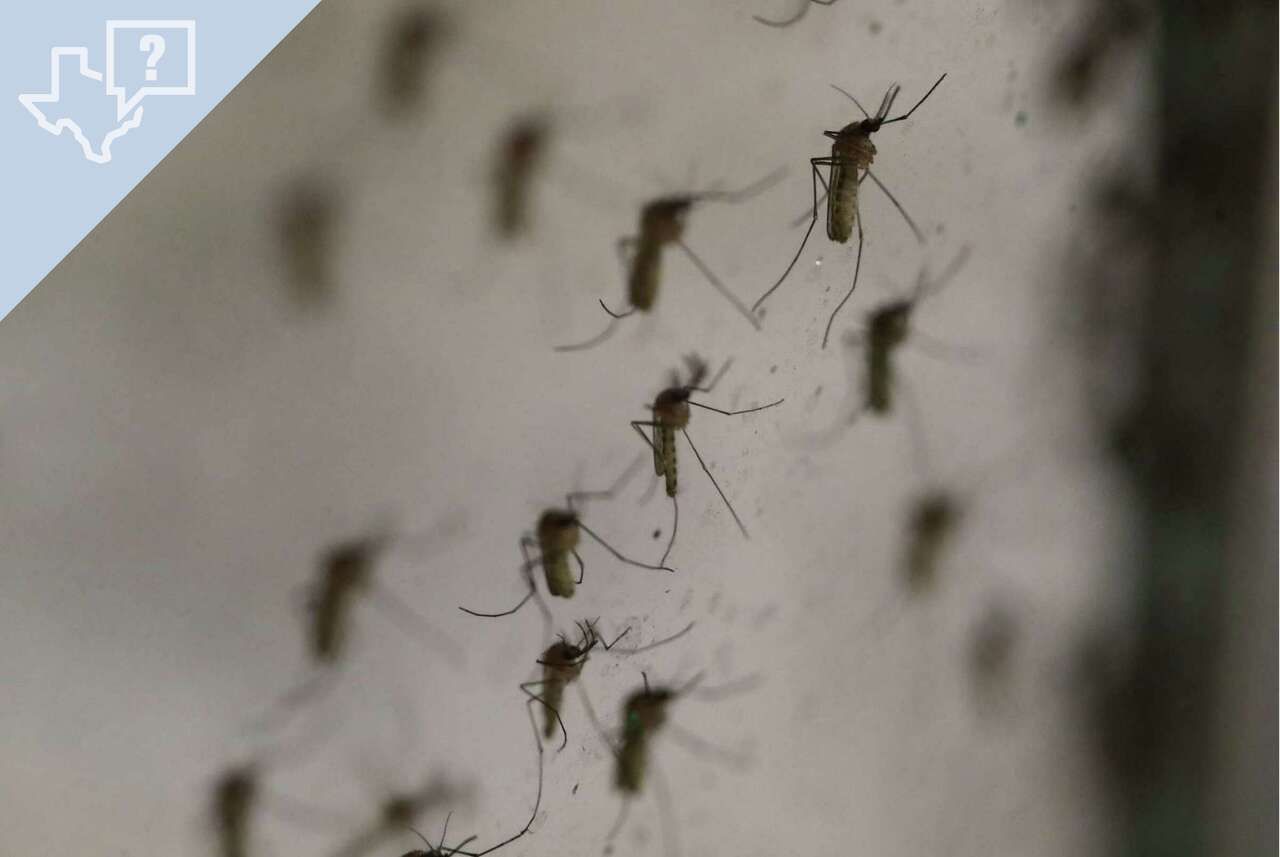July 18, 2025

Why Houston has such a serious mosquito problem and what’s being done to keep them in check
Every summer, as temperatures rise to ungodly highs and storms dump millions of gallons of water on our heads, Houstonians brace themselves for a familiar nuisance: the relentless buzz and bite of mosquitoes.
These pesky beasts swarm our backyards and balconies, terrorizing children, pets and anything they can suck the life force out of. And it’s not just the fact that they’re out for (our) blood that makes them so annoying; they can carry potentially deadly diseases ranging from West Nile virus and St. Louis encephalitis to dengue fever and Zika.
I spoke with Courtney Standlee, interim director of Harris County Public Health’s mosquito and vector control division, for some insight on why the Houston area’s mosquito problem is so bad and what’s being done about it.
Why does Houston have such a bad mosquito problem?
Essentially, it’s because Houston is a paradise for these suckers.
Standlee says Houston’s subtropical climate, urban development patterns and drainage issues all come together to create ideal breeding grounds for dozens of mosquito species (there are more than 50 different species found in Harris County).
“It’s the perfect mixture of habitat, standing water, low-lying areas,” Standlee said. “We have humidity that keeps the eggs viable when they’re laid. If there’s a dry spell, we have enough rainfall (to keep them viable). And then, as Harris County has grown, there are artificial water sources, like sprinklers, that contribute more water into this hot, humid environment.”
Houston’s environment — both the natural and built — is practically tailor-made for mosquito proliferation.
Are mosquitoes in Houston just annoying, or are they dangerous?
They may seem like little more than itchy irritants, but Houston’s mosquitoes can carry far more risk than most residents realize. The region is home to several species known to transmit serious illnesses, including West Nile virus and dengue fever.
While large outbreaks are rare, Standlee says that even a single infected mosquito — no matter how it got here — can cause harm. Just last year, three Harris County residents died from West Nile virus. (Only one case has been confirmed in the county so far this year.)
“Something else that’s unique about Harris County is that we have a huge airport and a shipping channel,” Standlee said. “And so it’s not only what we already have here, but if mosquitoes come from other parts of the U.S. or the world, and they’re able to exit those transport containers and establish in our county, then we have a new problem.”
But the vast majority of Houston’s mosquitoes are what Standlee calls “nuisance” populations, which don’t carry disease and are, as the term implies, just straight-up annoying.
Although warding off these non-diseased mosquitoes is not always the focus for government agencies like Harris County Public Health, HCPH dedicates millions and a ton of manpower to combat the “vectors” — the scary disease-carrying mosquitoes that pose epidemiological danger.
What are local governments doing to control mosquitoes?
The war against the mosquito invaders is one with multiple fronts — on the ground, in the lab and sometimes in the sky.
Tackling the disease-carrying mosquito population are organizations like Harris County Public Health and the Houston Health Department. HCPH surveils mosquito populations through a vast network of traps and tests thousands of samples at its southside mosquito lab each year for dangerous viruses like West Nile and Zika.
When disease-carrying mosquitoes are detected, targeted spraying follows. What does that look like? It’s usually the trucks you might see and hear creeping through your neighborhood late at night, spewing mosquito-killing fumes. But it can also be planes dropping larvicides over large stretches of the county.
Now, about those so-called nuisance mosquitoes (aren’t they all nuisance mosquitoes?). Harris County Public Health targets only mosquitoes that can cause disease, Standlee says. To get rid of the annoying ones, other organizations, like private companies and other county entities, step in.
At public parks, for example, the Harris County commissioners’ precincts can step in and spray for nuisance mosquitoes. In Precinct 4, a swath of west Harris County represented by Lesley Briones, road and bridge crews deploy low-volume mosquito foggers at around 20 public parks every weeknight.
The City of Houston also contracts pest control services for its own parks, the city’s airports and other problem areas.
How are you holding up this mosquito season?
 | Jhair Romero, Houston Explained Host |
|
Ask Us Anything
What stumps you about Houston? Reply directly to this email with your questions.
Unsubscribe | Manage Preferences

Houston Chronicle
4747 Southwest Freeway, Houston, TX 77027
© 2025 Hearst Newspapers, LLC

